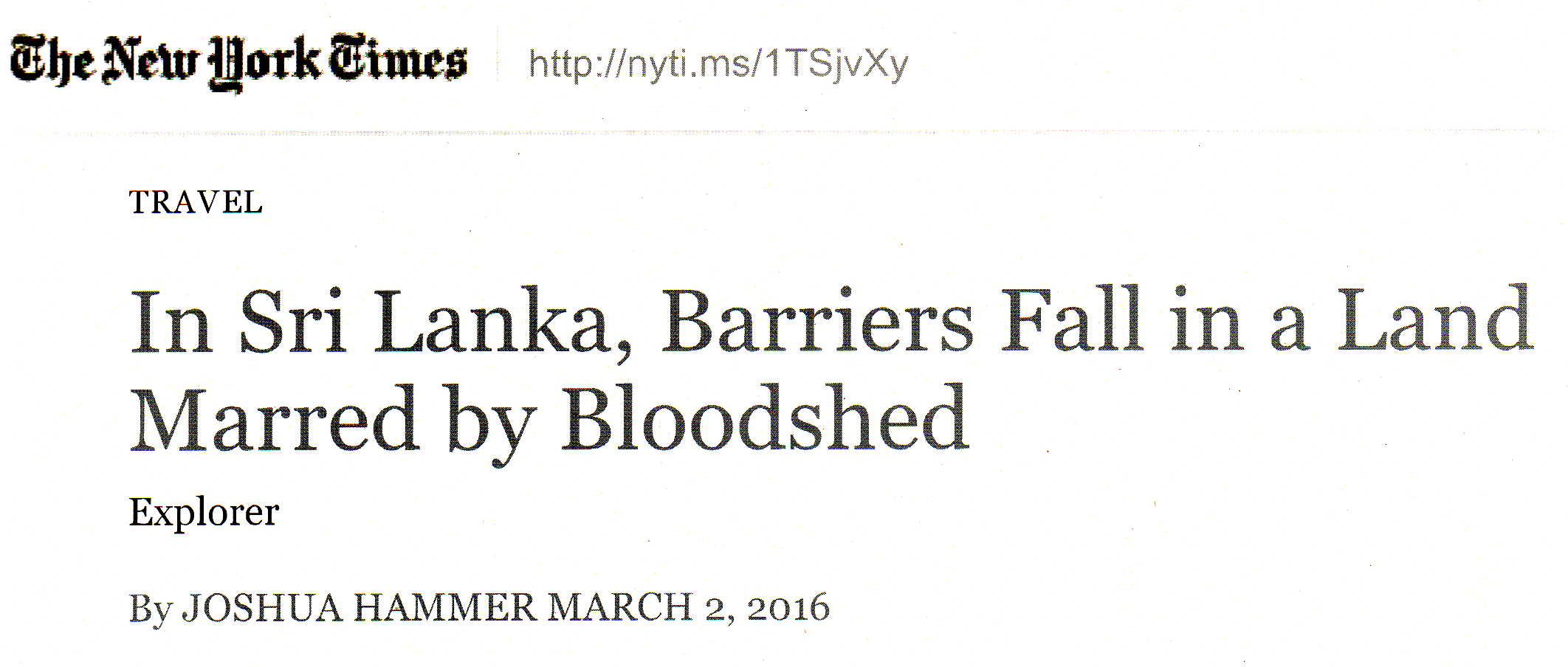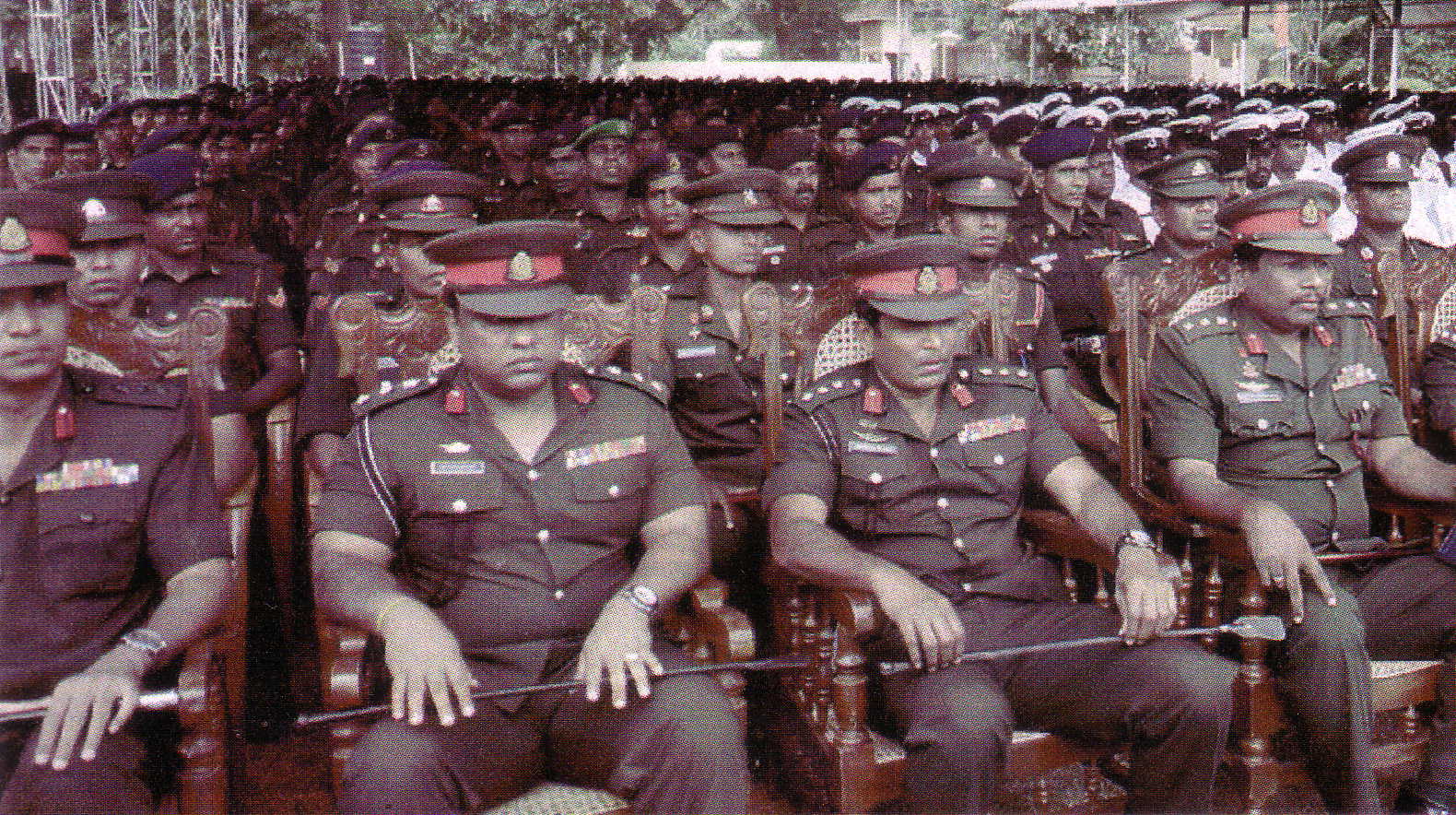snake oil: n. informal. A substance with no real medicinal value sold as a remedy for all diseases. [New Oxford American Dictionary, 2001, p. 1613]
The March 2nd issue of the New York Times carried a travel-related opinion piece by Joshua Hammer, which I consider nothing but snake oil. I checked on the profile of this writer. According to a Wikipedia entry under his name, he was born in June 12, 1957, and identified as ‘an American journalist and foreign freelance correspondent and bureau chief for Newsweek and in Euorpe.’ The caption of this particular piece itself ‘In Sri Lanka, Barriers fall in a Land marred by Bloodshed’ highlighted to me that Mr. Hammer, whatever writing credentials he possess, was nothing but a snake oil salesman for Sri Lanka.
The caption itself was an outrageous lie! Barriers have not fallen. How about the recruitment of Tamils to Sri Lankan armed forces? As I have written in earlier occasions, snake oil sellers for Sri Lanka never bother to read the post-independent history of Sinhalese racism against the Tamils in the recruitment for armed forces. The story of the origin of LTTE aka Tamil Tigers, led by Velupillai Prabhakaran, begins in 1962 with the racially exclusive recruitment of Sinhalese majority to the armed forces, and not in 1972 or 1976.
What irked my nerves was this sentence inserted in a paragraph on the Jaffna Public Library. “After a pro-separatist Tamil party held a rally in Jaffna in 1981 in which two Sinhalese policemen were killed, a mob burned the library to the ground, an act that served to catalyze the conflict.” A Mob? Why not identify the culprits openly? From this sentence alone, I inferred that Mr. Hammer either didn’t do his homework thoroughly, or he was doing a soft-brushing job to the Sri Lankan armed forces to varnish the damages caused by Nazi-minded pyromaniacs, who belonged to the Sinhalese majority.
My inference was confirmed with the pejorative profile of Velupillai Prabhakaran, as “A high-school dropout from Jaffna, Mr. Prabhakaran tried to build an egalitarian utopia in the Tiger-occupied Vanni, but he grew increasingly isolated, paranoid and brutal; Sri Lankan troops captured and executed him in the last days of the government’s offensive.” Let me analyze the facts here.
That Prabhakaran was a ‘high-school dropout’ is a fact. But, by the same token, Prabhakaran’s Sinhalese rivals who were Sinhalese army’s military commanders were high school dropouts too. Even majority of Sri Lanka’s Sinhalese presidents (Ranasinghe Premadasa, Dingiri Banda Wijetunga, Mahinda Rajapaksa and Maithiripala Sirisena) were high school drop outs as well. Mr. Hammer had never met Prabhakaran, when he was living, in person. Thus, his description about the LTTE leader that “he grew increasingly isolated, paranoid and brutal” was obviously from low grade secondary or tertiary sources. It is to the credit of Prabhakaran that he had the guts to challenge the bullying of Indian army guys and suave sweet talking diplomats in 1980s and thump their noses. None of the Sinhalese army commanders can boast of such a distinction.
That “Sri Lankan troops captured and executed him in the last days of the government’s offensive” is not corroborated by the account which appeared in the New York Times of May 18, 2009, under the caption, ‘Sri Lanka says Leader of Rebels has died.’ Those who contributed to this story, were Mark McDonald (reporting from Hong Kong) and Alan Cowell (from Paris). Both reporters were not in the battle field. But they were cautious in their statements, which included, “It was not possible to verify whether the [LTTE] men had been killed in last-ditch fighting or had their their own lives using cyanide capsules that some rebels have worn in vials around their necks.” In addition, there was another sentence which indicated that the Sri Lankan government’s military sources cannot be relied upon, because, “Confirmation of government claims has been impossible because the military has barred independent journalists, most aid agencies and human rights monitors from the battle zone and refugee-settlement areas.”

